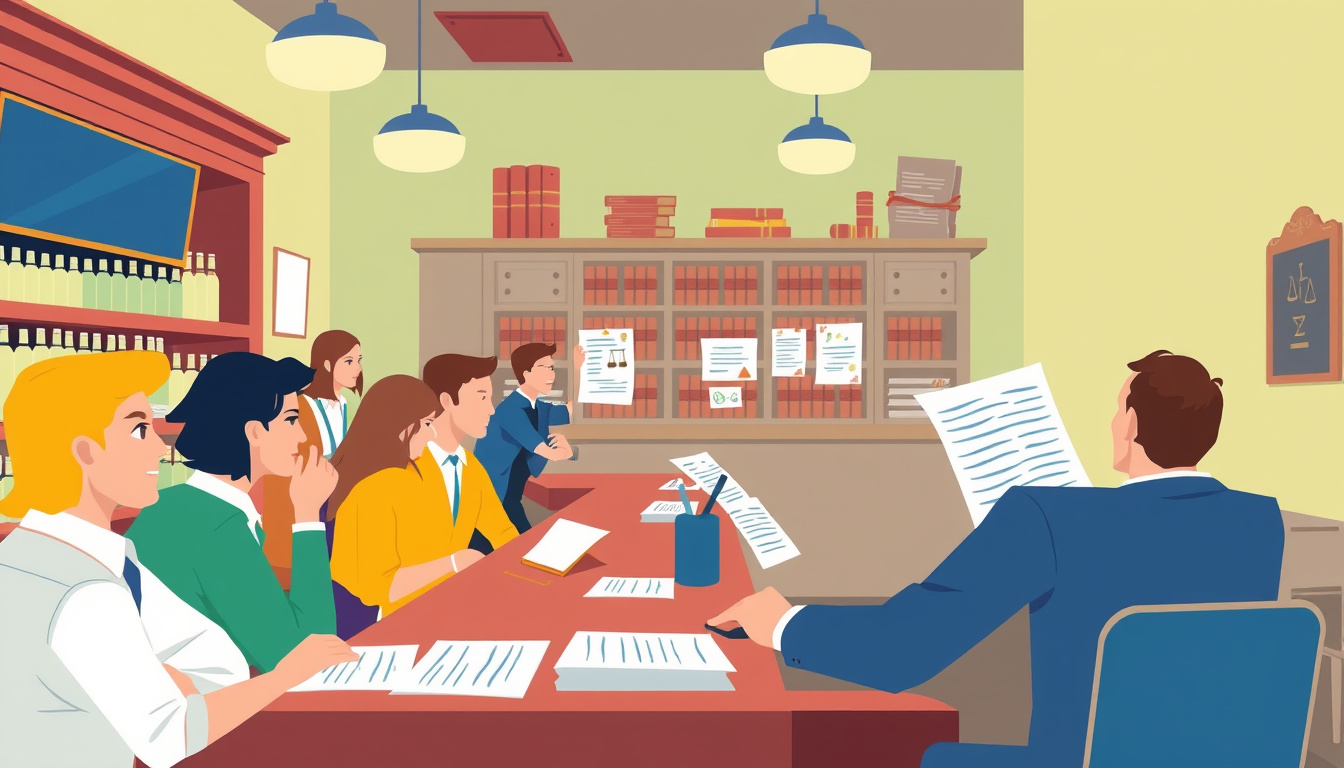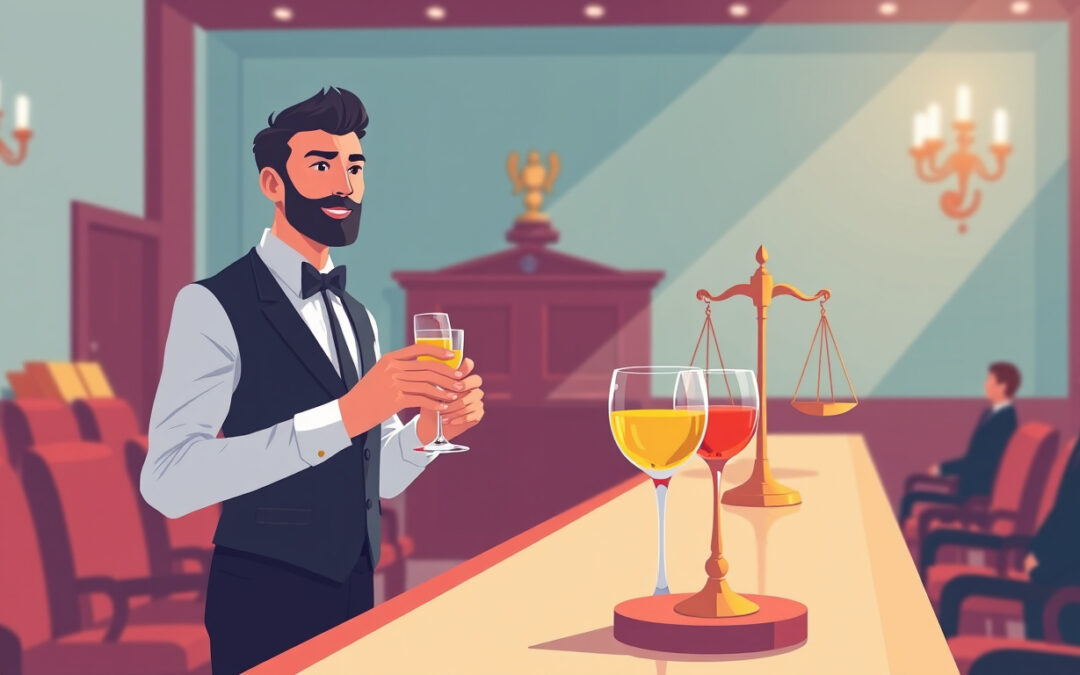Dram shop laws are an important aspect of liquor liability that can have significant legal consequences for establishments serving alcohol. If you own a bar, restaurant, or any business involved in serving alcohol, understanding the legal implications of dram shop laws is essential to safeguard your business and adhere to legal responsibilities. In this article, we will explore what dram shop laws are, how they work, and what legal risks and obligations you face under such laws.
What Are Dram Shop Laws?
Dram shop laws are statutes that hold third parties—such as bars, restaurants, and liquor stores—liable for damages caused by serving alcohol to intoxicated individuals or minors. The term “dram shop” originates from the traditional practice of selling liquor in small glasses called “drams,” and these laws establish liabilities similar to those found in product liability or negligence cases.
In simple terms, a dram shop law allows victims who are harmed by an intoxicated individual to pursue legal action against the establishment that served the alcohol, provided certain conditions are met. These laws serve both as a deterrent against reckless service practices and as a means to ensure that those harmed by intoxicated individuals can seek compensation.
How Do Dram Shop Laws Work?
Dram shop laws vary by state, but generally, they operate on principles of negligence and liability. When an individual is injured due to someone else’s intoxication, the injured party can file a claim against:
- The individual who was served alcohol
- The alcohol-serving establishment that served the intoxicated individual
However, the primary focus of dram shop liability is on the service provider. The key factors that determine liability often include:
- Whether the establishment served alcohol to a minor or an obviously intoxicated person
- The circumstances under which the person was served
- The state’s specific statutes and legal standards
For example, in many jurisdictions, a bar can be held liable if it over-served a visibly intoxicated patron who then caused a car accident, injuring others.
Conditions for Liability
While the specifics differ by jurisdiction, common conditions for establishing dram shop liability include:
- The establishment served alcohol to an individual who was visibly intoxicated or a minor
- The individual was harmed or caused harm due to their intoxication
- There is a causal link between the establishment’s service and the injury
Legal Risks for Alcohol Service Establishments
Understanding the legal implications of dram shop laws is critical for any business involved in serving alcohol. The most prominent risks include:
1. Legal Liability for Alcohol-Related Harm
Establishments can be held financially responsible for damages caused by their patrons if their service contributed to the harm. This could include:
- Car accidents
- Assaults and violence
- Property damage
- Personal injuries
2. Increased Insurance Costs
Because of the potential liabilities, many businesses facing dram shop regulations carry higher liquor liability insurance premiums. Insurance providers assess the risk of lawsuits when setting rates, which can increase operational costs.
3. Civil and Criminal Penalties
Failure to adhere to dram shop laws can result in civil lawsuits, fines, or license revocations. Courts may impose penalties on establishments that serve minors or visibly intoxicated patrons.
4. Reputation Damage
Legal actions stemming from violations of dram shop laws can harm a business’s reputation, possibly leading to decreased patronage and revenue.
How to Minimize Legal Risks Under Dram Shop Laws
To protect your business from potential liabilities associated with dram shop laws, consider these best practices:
- Implement strict training programs for staff on responsible alcohol service
- Verify the age of all patrons to prevent serving minors
- Monitor patrons for signs of intoxication and refuse service when appropriate
- Maintain detailed records of alcohol sales and patron interactions
- Develop a clear policy for refusing service to intoxicated customers
- Regularly review legal compliance with local and state liquor laws
Adhering to these practices can significantly reduce the risk of liability and help ensure your establishment remains compliant with dram shop laws.

Key Components of Effective Alcohol Service Policies
Implementing comprehensive policies not only minimizes legal risk but also promotes responsible service standards. Here are essential components to include:
- Training and Certification: Ensure all staff complete responsible beverage service training
- ID Verification Procedures: Strictly check IDs for minors or suspicious documents
- Monitoring and Intervention: Train staff to recognize intoxication signs and intervene appropriately
- Incident Documentation: Record any situations involving over-service or refusal of service
- Emergency Procedures: Establish protocols for handling incidents involving intoxicated patrons
The Role of Local Laws and Regulations
Since dram shop laws differ significantly between states, it’s vital to understand your jurisdiction’s specific legal environment. Some states impose strict liability, meaning any service to minors or intoxicated persons can lead to liability, while others require proof of negligence.
Official sources like state liquor control boards or legal resources can provide detailed information tailored to your location. Consulting legal professionals familiar with liquor law ensures your policies align with local regulations.
Summary: The Critical Importance of Diligence and Compliance
Dram shop laws reinforce the responsibilities of alcohol-serving businesses to promote responsible service and prevent alcohol-related harm. The legal implications underscore the importance of diligent, responsible practices that comply with all relevant statutes. By implementing responsible service policies, training staff, and understanding your legal obligations, you can mitigate risks and foster a safer environment for your patrons and the community.


